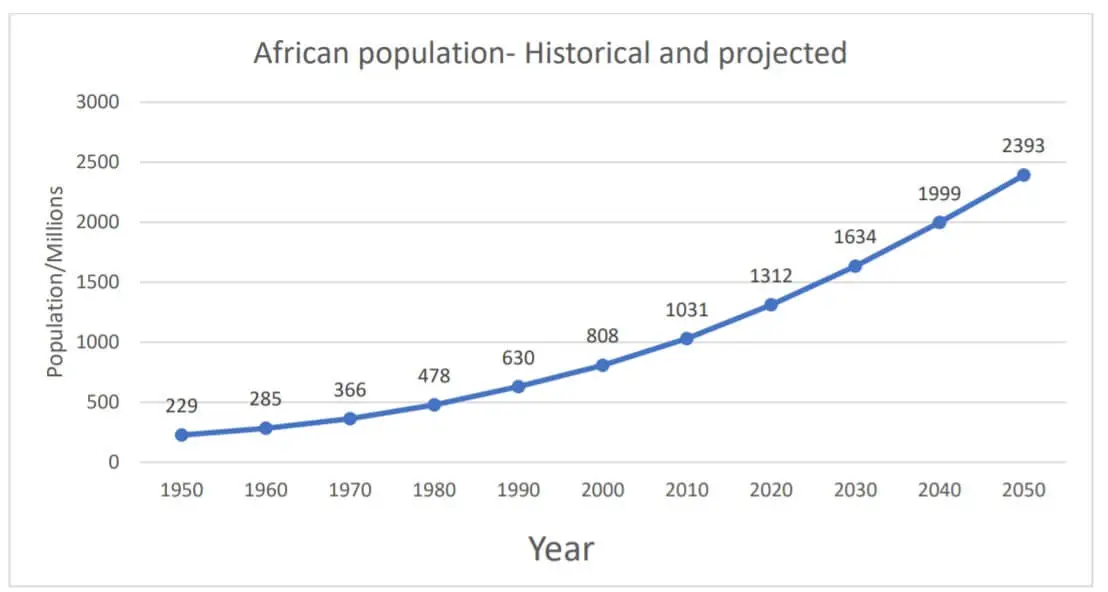‘Gene revolution’: Africa could benefit greatly from embracing genetically engineered crops — but overcoming public and policymaker skepticism is key, concludes Russian researchers
‘Gene revolution’: Africa could benefit greatly from embracing genetically engineered crops — but overcoming public and policymaker skepticism is key, concludes Russian researchers


Sub-Saharan Africa (SSA) is the least food-secure region, and solutions are constantly being sought to alleviate the problem. The region’s exponentially growing population is in dire need of affordable and nutritious food.
The “Gene Revolution” (genetic engineering) presents opportunities in which food security can be ensured in SSA. Genetic modification (GM) has potential to solve myriad problems currently being experienced in SSA agriculture, hence improving yields and reducing the costs of production.
Most of the SSA countries have a precautionary stance towards GM crops; thus, only a handful of countries have approved the commercialized production of transgenic crops. The lack of understanding and sound knowledge about the GM system is reflected in the formulation of policies and regulatory frameworks for biosafety and their implementation.
There is need to conscientize the policymakers and the public about the general principles of genetic engineering for better decision making. Considering the multiple beneficial aspects demonstrated by transgenic crops it will not be prudent to ignore them. The versatility of GM technology makes it adaptable to the food crisis in SSA.

With the current state of affairs, African farmers cannot compete effectively on the global market with American and Asian producers who enjoy the economic advantages that come with the use of GM crops.
As the cost of production reduces and higher yields are achieved as a result of using pest-resistant varieties, the farmers gain leverage to compete on the basis of price on the global market.
The same cannot be said for the SSA farmers who are riddled by high costs of production as well as low yields due to pests and diseases. Adoption of GM technology across the region will be a turning point in SSA agriculture.
…
The disquisition boils down to the fact that the confluence of multiple factors such as exponential population growth, climate change, migration of invasive pests, small landholdings, post-harvest losses and poor farming methods increase Sub-Saharan Africa’s vulnerability to hunger and starvation.
Sub-Saharan Africa’s agriculture needs technologies that can improve productivity and profitability. This can only be attained by taking a paradigm shift and not cumulative change.
The adoption of GM technology in the region will ameliorate most of the challenges currently bedeviling agricultural productivity and consequently food security. The growing of GM crops will not only tackle the issue of food security but will also contribute towards higher incomes for farmers and stimulate economic growth.
Promoting genetic literacy among the politicians and the public is vital in removing the ambivalent attitude towards GMOs. The region needs to invest more towards biotechnological projects and invite the private sector to the party so as to accentuate the pace of development. It is, however, important to monitor the use of this technology for sustainable development.
This is an excerpt. Read the original post here.

 | Videos | More... |

Video: Nuclear energy will destroy us? Global warming is an existential threat? Chemicals are massacring bees? Donate to the Green Industrial Complex!
 | Bees & Pollinators | More... |

GLP podcast: Science journalism is a mess. Here’s how to fix it

Mosquito massacre: Can we safely tackle malaria with a CRISPR gene drive?

Are we facing an ‘Insect Apocalypse’ caused by ‘intensive, industrial’ farming and agricultural chemicals? The media say yes; Science says ‘no’
 | Infographics | More... |

Infographic: Global regulatory and health research agencies on whether glyphosate causes cancer
 | GMO FAQs | More... |

Why is there controversy over GMO foods but not GMO drugs?

How are GMOs labeled around the world?

How does genetic engineering differ from conventional breeding?
 | GLP Profiles | More... |

Alex Jones: Right-wing conspiracy theorist stokes fear of GMOs, pesticides to sell ‘health supplements’




 Viewpoint — Fact checking MAHA mythmakers: How wellness influencers and RFK, Jr. undermine American science and health
Viewpoint — Fact checking MAHA mythmakers: How wellness influencers and RFK, Jr. undermine American science and health Viewpoint: Video — Big Solar is gobbling up productive agricultural land and hurting farmers yet providing little energy or sustainabilty gains
Viewpoint: Video — Big Solar is gobbling up productive agricultural land and hurting farmers yet providing little energy or sustainabilty gains Trust issues: What happens when therapists use ChatGPT?
Trust issues: What happens when therapists use ChatGPT? Fighting deforestation with CO2: Biotechnology breakthrough creates sustainable palm oil alternative for cosmetics
Fighting deforestation with CO2: Biotechnology breakthrough creates sustainable palm oil alternative for cosmetics California, Washington, Oregon forge immunization alliance to safeguard vaccine access against federal undermining
California, Washington, Oregon forge immunization alliance to safeguard vaccine access against federal undermining 30-year-old tomato line shows genetic resistance to devastating virus
30-year-old tomato line shows genetic resistance to devastating virus The free-range chicken dilemma: Better for birds, but with substantial costs
The free-range chicken dilemma: Better for birds, but with substantial costs ‘You have to treat the brain first’: Rethinking chronic pain with Sanjay Gupta
‘You have to treat the brain first’: Rethinking chronic pain with Sanjay Gupta
